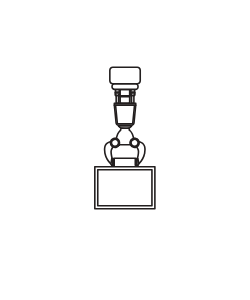Exploring the World of Milling Machine Shops
Have you ever wondered what goes on in a milling machine shop? These workshops are crucial for creating precision parts for a wide range of industries, from automotive to aerospace.
In this blog post, we will delve into the world of milling machine shops and explore the fascinating work they do. Join us as we uncover the inner workings of these facilities and gain a better understanding of their importance in modern manufacturing processes.
Milling Machine Operations
One of the primary functions of a milling machine shop is to perform various machining operations using specialized equipment. Milling machines are used to remove material from a workpiece to create intricate shapes and designs. This process involves rotating cutting tools that remove excess material through a series of movements. These machines can produce parts with high accuracy and precision, making them ideal for creating components with tight tolerances.
Custom Part Fabrication
Milling machine shops often specialize in custom part fabrication, catering to the unique needs of different industries. Customers can provide detailed specifications for their desired parts, and skilled machinists will use computer-aided design (CAD) software to create digital models before starting the production process. With state-of-the-art machinery and expertise, milling machine shops can produce complex parts that meet strict quality standards.
Quality Control Measures
Quality control is a critical aspect of any milling machine shop operation. To ensure that parts meet specifications and adhere to industry standards, these facilities implement rigorous quality control measures throughout the production process. Inspections are conducted at various stages, from raw material assessment to final product testing. By maintaining strict quality control protocols, milling machine shops can deliver reliable and durable components to their customers.
Material Selection and Machining Techniques
In addition to precision machining operations, milling machine shops must also consider factors such as material selection and machining techniques when producing parts. Different materials require specific cutting speeds, feeds, and tooling strategies to achieve optimal results. Machinists must have a deep understanding of how different materials behave under various conditions to prevent issues such as tool wear or poor surface finish. By selecting the right materials and employing suitable machining techniques, milling machine shops can enhance part quality and performance.
Milling machine shops play a crucial role in modern manufacturing by producing precision parts for diverse industries. Through specialized machining operations, custom part fabrication, stringent quality control measures, material selection expertise, and client collaboration efforts, these facilities deliver high-quality components that meet customer specifications consistently.
Reach out to a local company like Aero Mechanism Precision to learn more.
 If you contribute to the industrial and manufacturing industry you may have considered implementing digital technology into your business. There's always a fear of the unknown and it's quite common to feel hesitant about trying something new. We created this site to help you decide if a changeover to digital technology is right for your business model.
We've researched the advantages and disadvantages of digital transformation by examining data, case studies, and speaking with manufacturing heads who have already embraced the transition. As you read the articles in this blog, you'll gain valuable insight into cost performance, productivity rates and quality enhancements of digital technology. We hope that by providing this information it will help you decide if a digital transformation is in your near future.
If you contribute to the industrial and manufacturing industry you may have considered implementing digital technology into your business. There's always a fear of the unknown and it's quite common to feel hesitant about trying something new. We created this site to help you decide if a changeover to digital technology is right for your business model.
We've researched the advantages and disadvantages of digital transformation by examining data, case studies, and speaking with manufacturing heads who have already embraced the transition. As you read the articles in this blog, you'll gain valuable insight into cost performance, productivity rates and quality enhancements of digital technology. We hope that by providing this information it will help you decide if a digital transformation is in your near future.